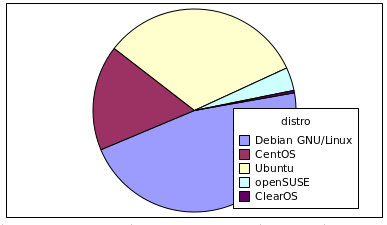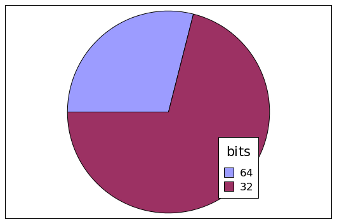The popularity of Linux distributions
 News first: Ubuntu 12.04 is available as a template for installation in the Selectel cloud. Ubuntu 12.04 is a new LTS (i.e. a version with an extended support period of 5 years for the server version).
News first: Ubuntu 12.04 is available as a template for installation in the Selectel cloud. Ubuntu 12.04 is a new LTS (i.e. a version with an extended support period of 5 years for the server version).Instead of making a press release from this phrase, I'd rather show you the popularity statistics of various distributions.
I know that in the absence of arch, gentoo, and slackware, the data is not quite representative, so you can consider this as data on the popularity of distributions that support automatic installation.
Distributions
So, first the data on the current popularity of the OS:

- Debian GNU / Linux * - 46.4%
- Ubuntu - 32.6%
- CentOS - 16.8%
- openSUSE - 3.8%
- ClearOS - 0.4%
')
* I know that some users abuse the ability to create anything in the system and turn poor debian into all sorts of gentoo / arch, while according to our statistics it continues to be considered debian.
Comment: The considerable gap in popularity with Debian is good news, however, the excessive presence of Ubuntu worries me a bit. With all that, Ubuntu says that it’s all from itself a server, it’s impossible to consider it a real server under the condition of potential regressions due to changing software versions as part of the distribution’s life.
Centos, on the other hand, occupies its well-deserved place: ancient as (mapped by censorship) mammoth, stable as permafrost.
Bit rate

Here is the ratio of bits we have now: 29% 64-bit systems, 71% - 32-bit.
And this is very curious - most users choose 32-bit platforms. In terms of payment for consumption, this is a completely justified choice, because the 64-bit code uses a larger amount of memory (with virtually the same functionality). The difference starts to be felt at high loads, where 64-bit code runs faster and can use more RAM for data without overhead.
Source: https://habr.com/ru/post/143224/
All Articles